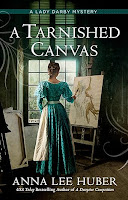I received this book for free from Netgalley. That did not influence this review.
To Chase the Glowing Hours by Katherine Kirkpatrick transports the reader to the 1920s and the heady days of the archeological discovery of King Tut’s tomb.
Lord Carnarvon is an English earl, fascinated by the ancient Egyptians. He spends a great deal of the family wealth supporting the efforts of Howard Carter, a brilliant but difficult (and possibly mentally disturbed) archeologist in a quest for an undisturbed royal Egyptian burial chamber. In 1922, Carter finds King Tut’s tomb.The novel tells the story from the point of view of Carnarvon’s daughter, Lady Eve. Eve is devoted to her father and shares his love of Egyptology. When Carter’s telegram arrives telling Carnavon he’s found the burial chamber but will await the earl’s arrival before entering it, Eve tags along. A 22-year-old socialite, Eve is far more interested in archeological discoveries than in London balls and parties. And she is far more interested in Howard Carter than in any London beau.
Kirkpatrick does a splendid job of including the reader in the excitement of the find. Lady Eve, Lord Carnavon, Howard Carter, and Carter’s assistant are the first people to step inside the chamber in over 3000 years. Although there is some evidence that grave robbers may have tapped into the chamber, the astounding array of artifacts and absence of disarray indicate that whoever was there didn’t take much, if anything. Lady Eve’s awe brings the setting to life.
The novel is meticulously researched. The artifacts are lovingly described. The political situation in Egypt is both peripheral and central to the story. And the ethical questions are explored. Who really has the right to possess these artifacts? Who has the right to tell the story of the dig? Is a little bit of grave robbing OK, compensation for all the effort?
An enjoyable read. Highly recommended.
















































